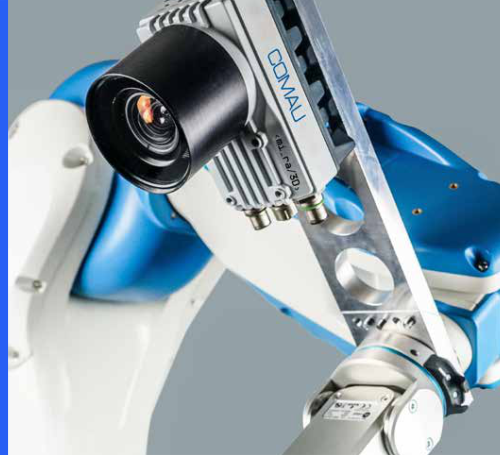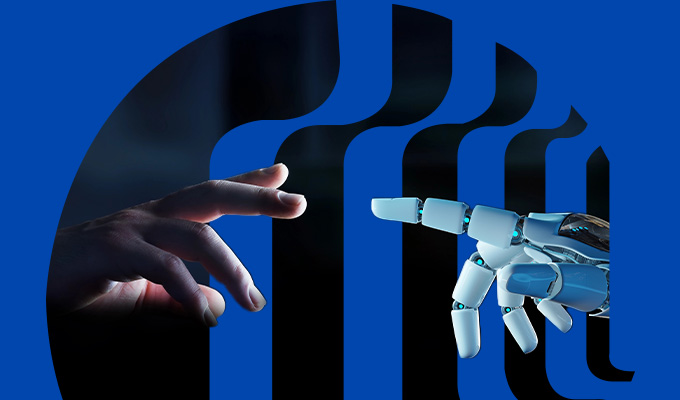Making intelligent automation a reality
Imagine the power of an open, easy-to-use automation paradigm based on intelligent robots that are flexible enough to dynamically adapt to changes in the production environment. With fully-integrated systems that can self-optimize processes, guarantee quality, ensure cost reductions, and expedite reconfigurability.
Empowering robots to handle the unexpected
The convergence of specialized vision systems, advanced robotics, machine inspection, digitalization, and Artificial Intelligence lets our robots handle customization, variability, and dynamic processes. This in turn translates to smarter production systems, smarter factories, and better overall performance.
As robots increasingly learn to handle the unexpected, they help you save time and costs while solidifying your ability to meet current and future production needs.
Advanced functionality
simplified
As humans and robots increasingly work in harmony within the Manufacturing environment, flexibility and productivity are increased. Robots understand and autonomously translate human syntax instructions into code.
Dynamic manufacturing
made easy
Comau’s set of technology enablers drives agile manufacturing. Sensors and vision systems allow robots to see what is happening, understand the real world, identify existing possibilities, and plan and proceed based
on variable inputs.
Real time process and
systems visibility
From real-time performance and status analysis to the automated traceability of parts and quality of output, comprehensive cell digitalization lets you control parameters and immediately correct process or material variations in real-time.
Top benefits of Comau’s Intelligent Robotics

Flexibility
With Smarter Autonomous Systems, robots can learn and respond to variables and dynamic requirements

Smart configuration
AI-based solutions enable the adoption of a pre-trained robot models, facilitating easier and faster deployment

Cost Savings
The use of advanced software reduces or eliminates additional programming or coding costs

Human-Robot collaboration
AI helps robots to adapt to dynamic situations and communicate naturally with operators

Smaller footprints
Cognitive intelligence aids movement synchronization, reducing risks of collisions and eventually the distances between robots

Improved sustainability
Downtime is reduced, efficiency increases, and less energy is consumed
eBook
Driving agility with
Intelligent Automation
How to boost your business with
Artificial Intelligence, Vision Systems
and Advanced Robotics



